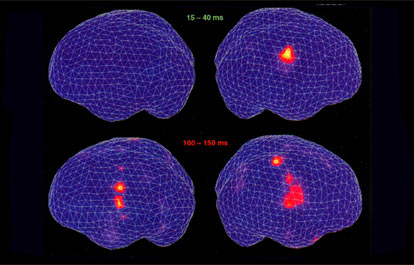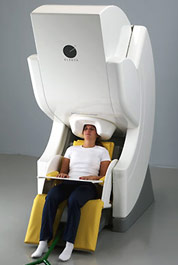

Scientific Lectures //
Theta event-related synchronization as a biomarker for a morbid effect of alcoholism on the brain th
Casey Gilmore, Ph.D. - Research Scientist, Neurobehavioral Research Inc. Honolulu, HI
Presented: November 9, 2012
ABSTRACT: Event-related, target stimulus-phase-locked (evoked) brain activity in both the time and time-frequency (TF) domains has been shown to be reduced in alcoholics. Recently, studies have suggested that there is alcohol-related information in the non-stimulus-phase-locked (induced) theta TF activity. In a series of studies, we aimed to investigate the hypothesis that increased induced theta event-related synchronization (ERS) is a biomarker for a morbid effect of alcohol abuse on brain function. Time-frequency analysis was applied to EEG recorded in response to targets in a 3-stimulus visual oddball task. Evoked and induced theta activity was compared between 36 treatment-naïve actively drinking alcoholics (TNA), 30 short-term abstinent alcoholics (6-15 weeks; STAA), 39 long-term abstinent alcoholics (> 18 months; LTAA), and 72 non-alcoholic controls (NAC). Results demonstrated that 1) evoked theta power was reduced to the same degree in the three alcoholic groups compared to non-alcoholic control participants, 2) induced theta ERS was significantly greater in each of the three alcoholic groups when compared to NAC, and 3) the magnitude of the induced theta ERS enhancement in the TNA and STAA groups, compared to NAC, was greater than that in the LTAA group. These results, coupled with previous findings that show a relationship between stronger theta ERS and increased memory load and attention allocation, suggest that increased induced theta ERS may be a biomarker for a detrimental effect of chronic alcohol abuse on the brain – a detriment that may recover, at least partially, with extended abstinence.
To view presentation please click here.

